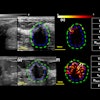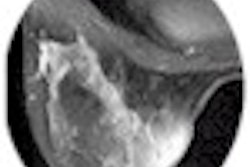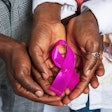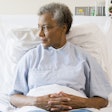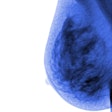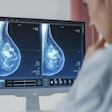Lesbian and bisexual women are less likely to undergo routine breast cancer screening, in part because the healthcare system is geared towards heterosexual women, according to a study in April's American Journal of Public Health.
Researchers from several institutions, including the University of California, Los Angeles and the Fred Hutchinson Cancer Research Center in Seattle analyzed seven national surveys, involving nearly 12,000 women in the lesbian and bisexual community, that were conducted between 1987 and 1996.
"Whereas many women experience well-known barriers to mammography screening, lesbians face, in addition, unique issues of access and use, including negative experiences with healthcare practitioners and mistrust of the healthcare community," the authors wrote (American Journal of Public Health, April 2001, Vol.91:4, pp. 591-597).
Among women in their 40s, lesbians had a lower rate of previous mammograms. In addition, the benefits of health insurance did not increase mammography rates for lesbians as much as they do for other women.
The group also had higher rates of smoking, alcohol use, and obesity, which could put them at increased risk for certain cancers. Finally, the researchers found that lesbians and bisexual women were less likely to have given birth or to have used oral contraceptives, both of which are associated with lower risk of certain cancers.
"We show that as a group, lesbians tend to have a cluster of risk factors for negative health outcomes," Dr. Susan Cochran of UCLA, the study's lead author, told Reuters Health. "Healthcare for women is organized around contraceptive needs, which bring women periodically into the health system. But lesbians typically don't have contraceptive needs."
Cochran suggested that negative past experiences with the healthcare system may make lesbians more reluctant to get regular care.
"For lesbians, experiences during late adolescence and early adulthood are likely to include exhortation to use contraceptives, disclosure of sexual orientation, and provider discomfort or negative behaviors," she said, according to Reuters Health.
By Shalmali PalAuntMinnie.com staff writer
April 14, 2001
Reuters Health contributed to this story.
Related Reading
Grassroots groups address high breast cancer rate among immigrants, March 30, 2001
Researchers around the world seek solutions to increase breast cancer screening, April 17, 2000
Click here to post your comments about this story. Please include the headline of the article in your message.
Copyright © 2001 AuntMinnie.com



